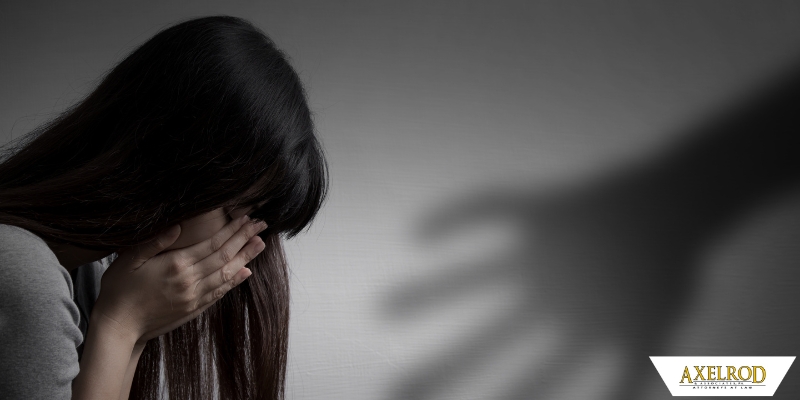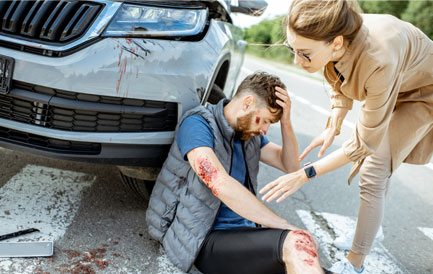4701 Oleander Drive, Suite A
Myrtle Beach, SC 29577
4701 Oleander Drive, Suite A
Myrtle Beach, SC 29577
Myrtle Beach Criminal Sexual Conduct Lawyer
Criminal Sexual Conduct Attorneys in Myrtle Beach, SC
The Myrtle Beach criminal sexual conduct lawyers on the Axelrod team know that just the allegation of rape can destroy a person’s reputation, career, and family.
A conviction can result in more than prison time – if you are convicted of CSC or CSC with a minor, you will be required to register as a sex offender for the rest of your life and you might even be required to wear a GPS monitor on your ankle.
We take your defense seriously and will do everything that is legally and ethically possible to help prove your innocence, clear your name, and get your charges dismissed, find a resolution that is acceptable, or win your case at trial.

Criminal Sexual Conduct (Rape) Charges in SC
Criminal sexual conduct (CSC) charges in SC refer to nonconsensual sex with an adult – CSC with a minor charges are covered by a separate statute and have different elements and potential penalties.
CSC 1st Degree
First degree criminal sexual conduct in SC is where a person “engages in sexual battery” with the alleged victim and:
- Uses aggravated force to accomplish the rape,
- The alleged victim submits to the sexual battery, and they were also the victim of forcible confinement, kidnapping, trafficking in persons, robbery, extortion, burglary, housebreaking, or a similar offense, or
- Causes the alleged victim “to become mentally incapacitated or physically helpless” by giving them an intoxicating substance without their consent.
Aggravated force means “the actor uses physical force or physical violence of a high and aggravated nature to overcome the victim or includes the threat of the use of a deadly weapon.”
1st degree CSC is punishable by up to 30 years in prison.
CSC 2nd Degree
Second degree criminal sexual conduct in SC is where a person uses aggravated coercion to accomplish a sexual battery.
Aggravated coercion means “to use force or violence of a high and aggravated nature to overcome the victim or another person, if the victim reasonably believes that the actor has the present ability to carry out the threat, or threatens to retaliate in the future by the infliction of physical harm, kidnapping or extortion, under circumstances of aggravation, against the victim or any other person.”
2nd degree CSC is punishable by up to 20 years in prison.
CSC 3rd Degree
Third degree criminal sexual conduct in SC is where a person engages in sexual battery with the alleged victim and:
- Uses force or coercion but there are no aggravating circumstances, or
- Knows “that the victim is mentally defective, mentally incapacitated, or physically helpless and aggravated force or aggravated coercion was not used to accomplish sexual battery.”
3rd degree CSC is punishable by up to ten years in prison.
Assault with Intent to Commit CSC
Assault with intent to commit CSC 1st, 2nd, or 3rd degree is punishable as if the rape had been committed.
CSC With A Minor And Statutory Rape
Criminal sexual conduct with a minor charges in SC are defined in SC Code Section 16-3-655.
CSC with a Minor 1st Degree
First degree CSC with a minor is where a person engages in sexual battery with an alleged victim who is:
- Younger than 11 years old, or
- Younger than 16 years old and the defendant has a prior conviction that requires placement on the sex offender registry.
CSC with a minor younger than 11 years old is punishable by a mandatory minimum of 25 years in prison and up to life in prison, while CSC 1st degree with a minor younger than 16 years is punishable by a mandatory minimum of ten years and up to 30 years in prison.
SC’s legislature also passed a law requiring the death penalty if the defendant has a prior conviction for CSC with a minor 1st degree – a provision that they likely knew was unconstitutional when they passed it.
CSC with a Minor 2nd Degree
Second degree CSC with a minor is where a person engages in sexual battery with an alleged victim who is:
- Between the ages of 11 and 14, or
- Between the ages of 14 and 16 if the defendant is 1) older than the alleged victim or 2) in a position of authority over the alleged victim.
2nd degree CSC with a minor is punishable by up to 20 years in prison.
CSC with a Minor 3rd Degree
Third degree CSC with a minor in SC is where a person “wilfully and lewdly commits or attempts to commit a lewd or lascivious act upon or with the body, or its parts, of a child under sixteen years of age, with the intent of arousing, appealing to, or gratifying the lust, passions, or sexual desires of the actor or the child.”
This could mean a sexual battery with a child between the ages of 14 or 16, or it could mean what SC law used to call a “lewd act” on any child younger than 16.
3rd degree CSC with a minor is punishable by up to 15 years in prison.
FAQs About South Carolina Criminal Sexual Conduct Law
Below are some general answers to common questions about CSC cases in SC. If you have a been charged with CSC or CSC with a minor, you should contact a Myrtle Beach CSC lawyer on the Axelrod team immediately to discuss your specific case and find out what your options are.
What is Statutory Rape?
Statutory rape is another word for CSC with a minor. In CSC with a minor cases, it does not matter if the alleged victim consented to sex – if someone is underaged, they cannot consent to sex and it is rape (statutory rape) for an adult to have sex with them.
What is the “Romeo Provision?”
A person cannot be convicted of CSC with a minor if they were 18 years old or younger, the alleged victim was 14 years old or older, and the sex was consensual.
Do You Use Experts or Investigators to Defend Rape Cases?
In some CSC cases, it may be necessary to retain an investigator who can uncover evidence or impeachment material we can use at your trial. In other cases, you may need forensic experts or psychiatric experts who can testify about the effect of multiple suggestive interviews, transference, or coaching on a child victim.
Whenever there is an issue in your case that requires specialized expertise to either examine the evidence or explain an issue to jurors, your CSC defense lawyer on the Axelrod team has access to experts and investigators who can assist in your defense.
Why Would Someone Make a False Allegation of Rape?
There are many unfortunate facts about CSC charges that may be difficult to hear. For example, many rape victims never report the crime. Also, many people who do report rape are not being truthful. It is the job of police investigators, prosecutors, CSC defense attorneys, judges, and juries to sort through the facts and determine what is true and what is not.
Many prosecutors, police officers, and, unfortunately, judges and juries will automatically believe the alleged victim. We have heard therapists and state’s experts on the witness stand say, “it is my job to believe the victim.” Why would someone lie about rape?
There are many reasons people lie about rape. For example:
- Mental illness – we don’t want to stigmatize the mentally ill. Obviously, not every mentally ill person makes false allegations of rape. Also, many false allegations of rape are made by persons who are suffering with some form of mental illness.
- Revenge – if you allege that someone raped you, that person is probably going to be arrested and prosecuted for rape. Their reputation is ruined, they are going to have a difficult time finding a date, and they might even go to prison…
- Buyer’s remorse – it seemed like a good idea the night before, but now my husband/wife/boyfriend/girlfriend found out where I was and knows I had sex! I can 1) tell them I cheated and face some tough consequences, or 2) tell them I was raped…
- Racism – imagine a situation where a nice young white girl has casual sex with a black man she met at the club. The next morning her extremely racist parents find out, and they will not understand or accept the truth…
- Alcohol and drugs – more than anything else, intoxication on alcohol or drugs is a primary cause of false rape allegations. A night at the club, a few drinks, then a few ecstasy pills, and a wild night with this crazy guy…
Why Would a Child Make a False Allegation of CSC?
False allegations of rape made by a minor are a more difficult question. Why would a child lie?
In some cases, children do lie about sex. If you have children, or know children, think about it – children lie about just about everything, don’t they? It’s not a judgment about the child, it’s just a fact that this is a stage in every child’s development.
On the other hand, some children who make false allegations aren’t exactly lying – they might believe that they had sex when it didn’t happen, because it has been repeated in multiple suggestive interviews or because they have been coached by a family member who is suspicious or who thinks it will help in their custody battle.
Even worse, children who are rape victims may identify the wrong person and, when it is repeated enough times, believe that it is true…
Children might make false allegations because:
- They are angry at the parent or other adult they are accusing,
- They want to live with the other parent,
- Their friends told them about their sexual trauma, and they are repeating what they have heard,
- The child suffers from a mental or emotional illness,
- Transference – the child was raped by a trusted figure, cannot reconcile what has happened with the person who did it, and so transfers the memories of abuse to another adult in their lives,
- Multiple suggestive interviews were conducted by parents, law enforcement, prosecutors, teachers, and counselors, or
- A family member is “coaching” them to make the allegations and telling them that it happened.
All these scenarios happen, they defy common sense, and they will require expert testimony to explain how and why to jurors.
What is the Rape Shield Statute?
SC’s Rape Shield Statute, found at SC Code Section 16-3-659.1, generally prevents the defense from introducing 1) evidence of specific instances of an alleged victim’s sexual conduct, 2) opinion evidence of an alleged victim’s sexual conduct, or 3) reputation evidence of an alleged victim’s sexual conduct in a CSC trial.
A defendant’s constitutional right to present a complete defense, however, takes precedence over the Rape Shield Statute, and relevant evidence about an alleged victim’s sexual conduct with someone other than the defendant is absolutely admissible at trial.
For example, a defendant cannot introduce evidence that the alleged victim had sex with ten other men in the past month in order to prove consent – it’s just not relevant and that is exactly the type of evidence the Rape Shield Statute is intended to exclude.
A defendant can, however, introduce evidence that the alleged victim was raped by someone other than the defendant – even though that is also evidence of the alleged victim’s sexual conduct. Evidence of adultery committed by an alleged victim, although it may be evidence of their sexual conduct, is also admissible to impeach the witness’ credibility.
GOT AXELROD?
If you have been charged with criminal sexual conduct or CSC with a minor in SC – or think you are under investigation for CSC – you need to consult with an experienced CSC/rape defense lawyer immediately. Before you talk to police or investigators.
Call 843-916-9300 or complete our contact form for a free initial consultation.
Need help? Contact Axelrod & Associates, P.A.

Request your
Consultation
The fields marked with * are mandatory.






